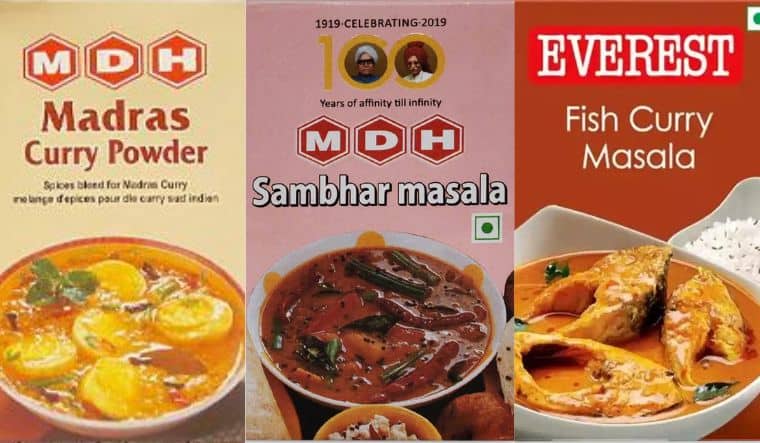The Food Safety and Standards Authority of India (FSSAI) Tuesday announced their lab tests show no trace of ethylene oxide (ETO), a cancer-causing food contaminant, present in MDH and Everest products. Hong Kong and Singapore alleged the presence of ETO in MDH and Everest products, as a result of which they halted domestic trade and recalled products off the shelves.
Products under fire are Madras Curry Powder, Sambhar Masala Mixed Masala Powder, Curry Powder Mixed Masala Powder from the house of MDH, and Everest Fish Curry Masala.
FSSAI, the Indian food regulatory authority, announced conducting extensive testing of the samples collected from the facilities of MDH and Everest. It started a nationwide inspection drive on April 22 after Hong Kong. The investigation came after Hong Kong and Singapore halted the trade of MDH and Everest products in their countries over higher levels of ETO presence. The latest to crackdown on MDH and Everest is Nepal, which announced a ban on the use of these implicated products till its own internal examination is over.
World’s food regulatory bodies said that they are closely examining the developments in the MDH and Everest controversy and would act accordingly. FSSAI, on the other hand, tested 34 samples of Everest and MDH spices– 9 from Everest’s facilities in Maharashtra and Gujarat and 25 from MDH in Delhi, Haryana, and Rajasthan.
According to ANI, the tests followed parameters such as checking moisture content, insect and rodent contamination, heavy metals, aflatoxins, and pesticide residues.
The samples taken also examined ethylene oxide at NABL-accredited laboratories as well.
Ethylene Oxide (ETO) is generally used overseas to limit the presence of pathogens such as salmonella. However, ETO usage is not allowed in countries such as the UK, where maximum residue levels are in place for commodities, including herbs and spices.
The FSSAI has got the results of 28 lab reports so far, analyzed by a scientific panel at FSSAI. The reports indicated no traces of ETO presence in the collected samples. However, six more lab tests are yet to come.
Similarly, test reports of more than 300 samples of spices collected from other brands resulted in a negative for ethylene oxide.
The scientific panel constituted of eminent scientists from the Spice Board, CSMCRI (Gujarat), Indian Spice Research Institute (Kerala), NIFTEM (Haryana), BARC (Mumbai), CMPAP (Lucknow), DRDO (Assam), ICAR, National Research Centre on Grapes, (Pune).
The Spice Board has also reportedly issued guidelines for spice exporters to ensure quality checks per standards set by importing countries.

